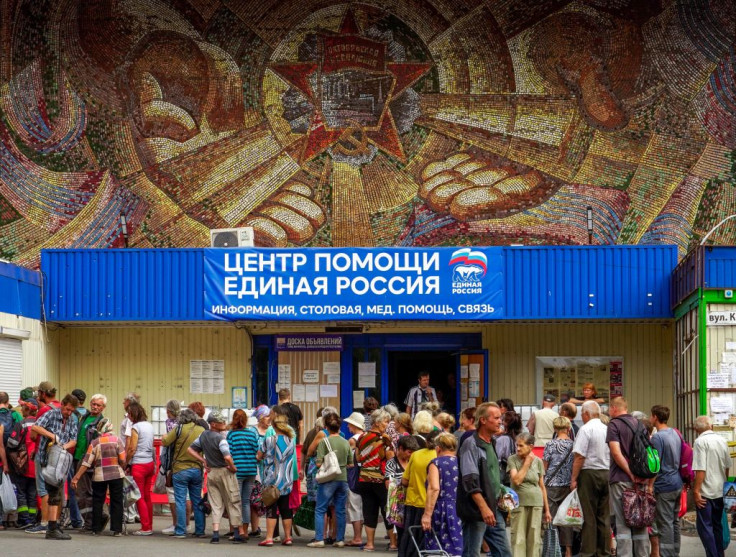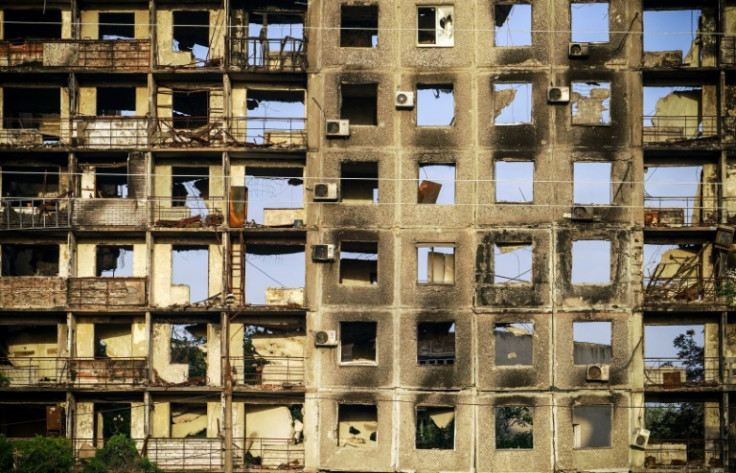Ukrainians Stage 'Hunger Riot' Over Suspended Humanitarian Aid In Occupied City: Report

KEY POINTS
- The International Committee of the Red Cross tried to suspend the humanitarian aid distribution on Tuesday
- More than 1,500 Mariupol residents queued for food from the Russian army in June
- The Russian army only distributed 400 food kits daily to Mariupol residents
Residents of a temporarily occupied territory in Ukraine on Tuesday staged a "hunger riot" after humanitarian aid was suspended, according to a top official.
Petro Andriushchenko, adviser to the mayor of the Russian-occupied Mariupol, said the "hunger riot" began after the International Committee of the Red Cross announced it was suspending the distribution of humanitarian aid at Meadow Park due to the large number of people
"The first real hunger riot. Due to the fact that there is no humanitarian aid from the invaders, the only source of food for many is humanitarian aid from the Red Cross. But because there were too many people, the Red Cross tried to cancel its distribution. There was a real riot," Andriushchenko wrote in a Telegram post.
Mariupol first fell to Russian control in May. Since then, residents have struggled with dwindling supplies of food and other essential goods. On June 6, Andriushchenko said approximately 1,500 to 2,000 residents queued for food and humanitarian aid from the Russian army at the former Metro shopping center. Despite the large number of people waiting for aid, the Russian military only issued up to 400 kits per day.
"People stand in a queue for six hours in the heat and sun in vain. There is no drinking water," he said at that time. "There is no other way to get food. Russia's humanitarian aid is bullying and humiliation. As [with] everything they do in the city."
At the end of June, Alexander Motuzyanyk, spokesman for the Ministry of Defense of Ukraine, said residents of Mariupol were struggling with desperately low stocks of food and essential goods. He added that they were not expecting any new deliveries of humanitarian aid from Russia, as reported by the Interfax-Ukraine news agency.
Last week, officials for the United Nations said they continue to face difficulties in providing humanitarian aid to the millions of people living in Mariupol and other Russian-occupied areas in eastern Ukraine. Since the invasion began in February, U.N. and other private aid agencies have only reached one million people in the occupied regions.
Denise Brown, the U.N. humanitarian corridor, said they are unable to get security guarantees from Russia that they need to send staffers across the frontline and distribute aid to people who need it.

© Copyright IBTimes 2025. All rights reserved.






















